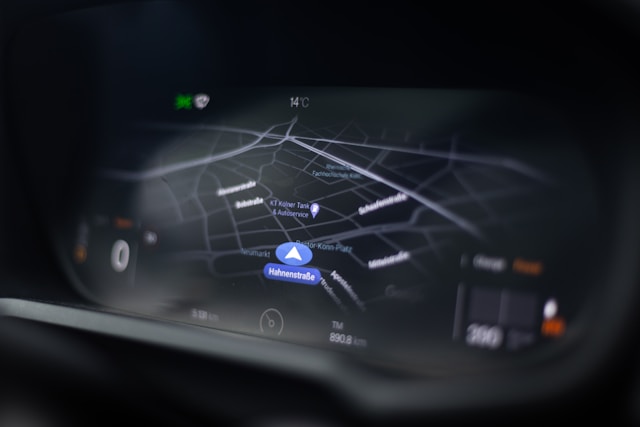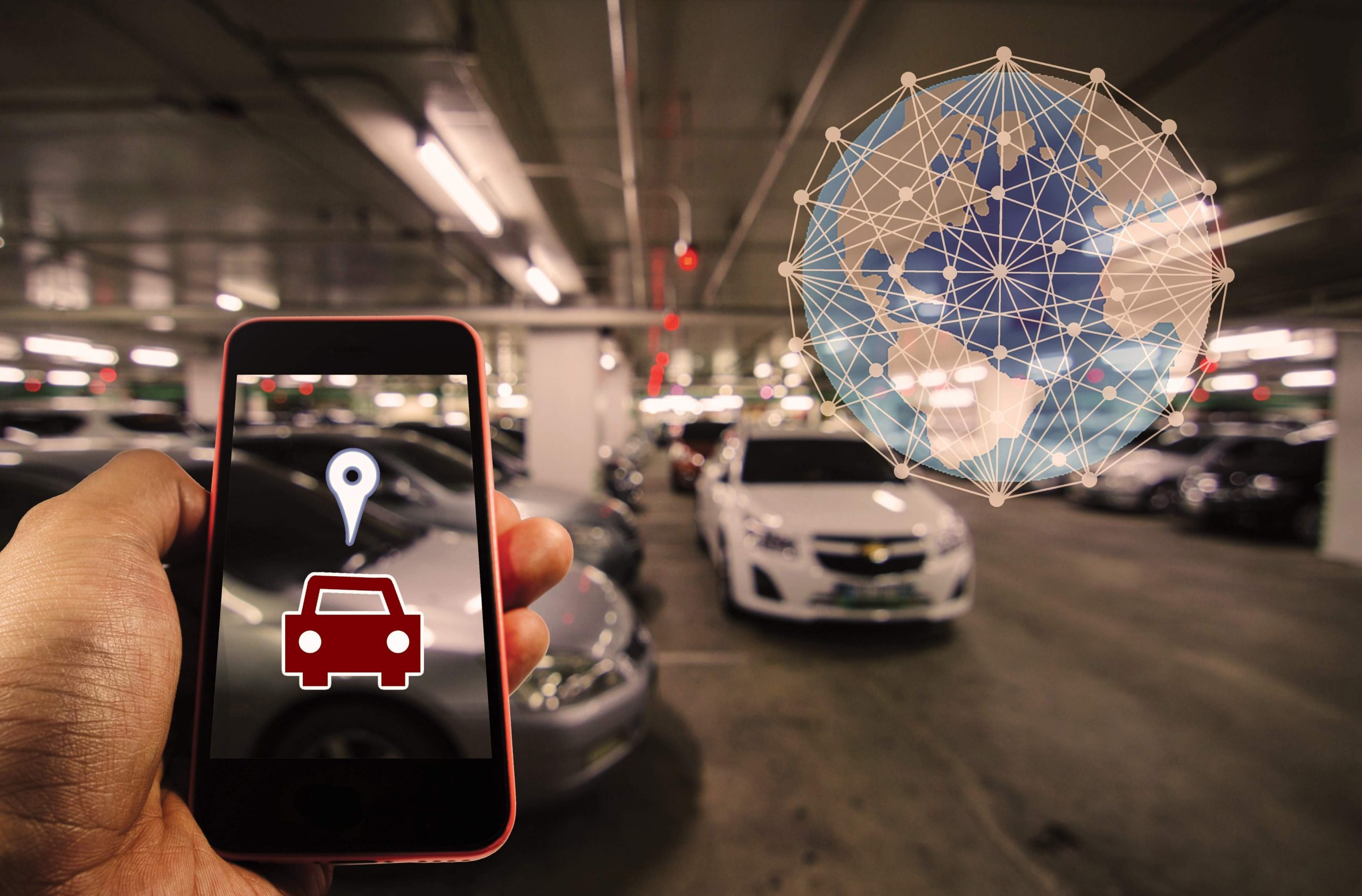How IoT Fleet Tracking Better Than Other Technologies In Transportation Industry
-
June 3, 2024
-
6 min read

IoT (Internet of Things) fleet tracking represents a significant evolution in fleet management technology, utilising interconnected devices and sensors to offer an unprecedented level of oversight and control over fleet operations.
This innovative approach surpasses the capabilities of traditional GPS tracking and location tracker systems by delivering real-time insights into vehicle location, condition, and driver behaviour, thus furnishing fleet managers with a holistic view of their operations.
This article will delve into the multifaceted advantages of IoT fleet tracking compared to older technologies as well as the unmatched scalability and ease of integration offered by IoT solutions.
Advantages Over Traditional Technologies
IoT fleet tracking stands out by offering multifaceted benefits that transcend the capabilities of conventional tracking technologies, enhancing efficiency, safety, and scalability in fleet management.
Efficiency and Cost Savings
- Route Planning: IoT-enabled devices harness dynamic, real-time data to optimise routes more effectively, considering factors such as traffic congestion, weather conditions, and specific vehicle performance metrics. This strategic route optimisation not only conserves fuel but also ensures timely deliveries, improving customer satisfaction.
- Asset Utilisation: Continuous monitoring of vehicle usage and operational status via IoT devices enables businesses to leverage their fleet to its fullest potential. This meticulous oversight helps in identifying underutilised assets and reallocating resources accordingly, thereby minimising unnecessary downtime and enhancing overall fleet efficiency.
- Reduced Downtime: The predictive maintenance feature of IoT fleet tracking systems proactively identifies potential vehicle malfunctions before they escalate into serious issues. This foresight allows for preemptive maintenance, significantly reducing downtime and associated costs, while also prolonging the lifespan of the fleet.
Safety and Compliance
- Risk Management: Leveraging real-time tracking and comprehensive driver behaviour analytics, IoT locate systems pinpoint hazardous driving practices instantly. This capability facilitates prompt intervention, correcting risky behaviours before they result in accidents, thereby elevating the overall safety of fleet operations.
- Compliance Monitoring: The automation of log keeping and the meticulous monitoring of driver hours through IoT technology streamline compliance with industry regulations. This systematic approach ensures legal compliance effortlessly, protecting businesses from potential fines and legal repercussions.
- Driver Behaviour Analysis: Detailed insights into driver habits and patterns gleaned from IoT data enable the implementation of targeted training programs. These initiatives focus on promoting safer driving practices, ultimately contributing to a more secure and responsible fleet operation.
Scalability and Integration
- Seamless Integration: IoT fleet tracking solutions are designed for easy integration with a wide range of enterprise systems, facilitating a cohesive operational view. This harmonious integration simplifies data management and enhances decision-making processes across the business.
- Scalability: The inherent scalability of IoT tracker systems ensures that they can grow in tandem with your business. As your fleet expands or your operational needs evolve, these systems adapt seamlessly, requiring minimal additional investment for expansion.
- Customisation: One of the standout features of IoT platforms is their flexibility, allowing for comprehensive customisation to address specific business objectives. Whether it’s fine-tuning alerts, reports, or the user interface, IoT solutions can be tailored to fit the unique demands of each fleet, driving unparalleled operational efficiency and effectiveness.
Market Outlook & Future Trends
The market outlook and future trends in fleet management signal a transformative phase, predominantly steered by IoT’s integration into the fabric of fleet operations. Several pioneering technologies and trends are poised to redefine the efficiency, security, and environmental footprint of fleet management, heralding a new epoch of innovation and sustainability.
- AI & Machine Learning: The adoption of artificial intelligence (AI) and machine learning in fleet operations promises a paradigm shift in predictive maintenance and route optimisation.
Beyond mere vehicle upkeep, AI’s capacity to sift through complex datasets enables unparalleled operational insights. This can lead to the dynamic allocation of resources, predictive scheduling based on real-time traffic and weather conditions, and even tailored customer delivery experiences.
The predictive analytics powered by machine learning are not limited to maintenance; they extend to foreseeing traffic patterns and optimising routes accordingly, thus saving time and fuel. This intricate analysis facilitates a deeper understanding of fleet performance metrics, driving decisions that bolster efficiency and productivity.
- Blockchain Technology: The potential of blockchain technology in fleet management extends far beyond the realms of security and transparency.
By creating an immutable ledger for all transactions, blockchain technology introduces a level of accountability and efficiency previously unattainable. This could drastically streamline operations involving contracts, billing, and record-keeping, making these processes more straightforward and less susceptible to fraud.
Moreover, the decentralised nature of blockchain fosters a more collaborative environment among stakeholders, enhancing trust and simplifying the complexities of multi-party transactions.
- Sustainability: As the global call for environmental stewardship intensifies, IoT fleet tracking emerges as a cornerstone technology in driving sustainable fleet operations.
By facilitating meticulous monitoring and optimisation of fuel consumption, IoT technology not only aids in reducing operational costs but also significantly diminishes the environmental impact of fleet operations.
The strategic deployment of IoT in managing electric vehicle fleets, including real-time battery management and optimising charging schedules, underscores the technology’s role in transitioning towards more sustainable, low-carbon transportation solutions.
The confluence of these technologies and IoT’s pervasive application within fleet management paints a promising picture for the future. The ongoing advancements in AI and machine learning, coupled with the robust security and transparency offered by blockchain technology, and the drive towards sustainability, collectively signal a forward-looking trajectory for the transportation industry.
As fleet management continues to evolve under the influence of these trends, the emphasis on efficiency, security, and environmental responsibility will undoubtedly shape the strategic priorities of businesses in this space. Embracing these innovations, therefore, becomes not just an option but a necessity for those looking to lead in the dynamic landscape of fleet operations.
Conclusion
In the rapidly evolving landscape of fleet management, it’s evident that the integration of IoT and emergent technologies like AI, machine learning, blockchain, and a focus on sustainability are not merely trends but foundational elements that will dictate the future of the transportation industry.
These advancements promise to enhance operational efficiency, bolster security measures, and significantly reduce the environmental impact of fleet operations, thereby setting new standards for how fleet management is perceived and executed.
The integration of AI and machine learning offers predictive insights that transform maintenance schedules and route planning, while blockchain technology introduces unmatched levels of transparency and security in transactions. Furthermore, the drive towards sustainability, particularly through the adoption of electric vehicles (EVs) and optimised fuel usage, highlights the industry’s commitment to environmental stewardship.
These technological integrations not only streamline operations but also pave the way for more ethical and responsible fleet management practices.
In this dynamic and technology-driven environment, selecting the right partner for your fleet management needs is crucial. Airtel, with its advanced firewall solutions, stands at the forefront of providing secure, reliable, and scalable fleet management solutions.
Airtel’s firewall technology ensures your fleet’s data remains protected against cyber threats, offering peace of mind in an era where digital security is paramount.
 Share
Share









